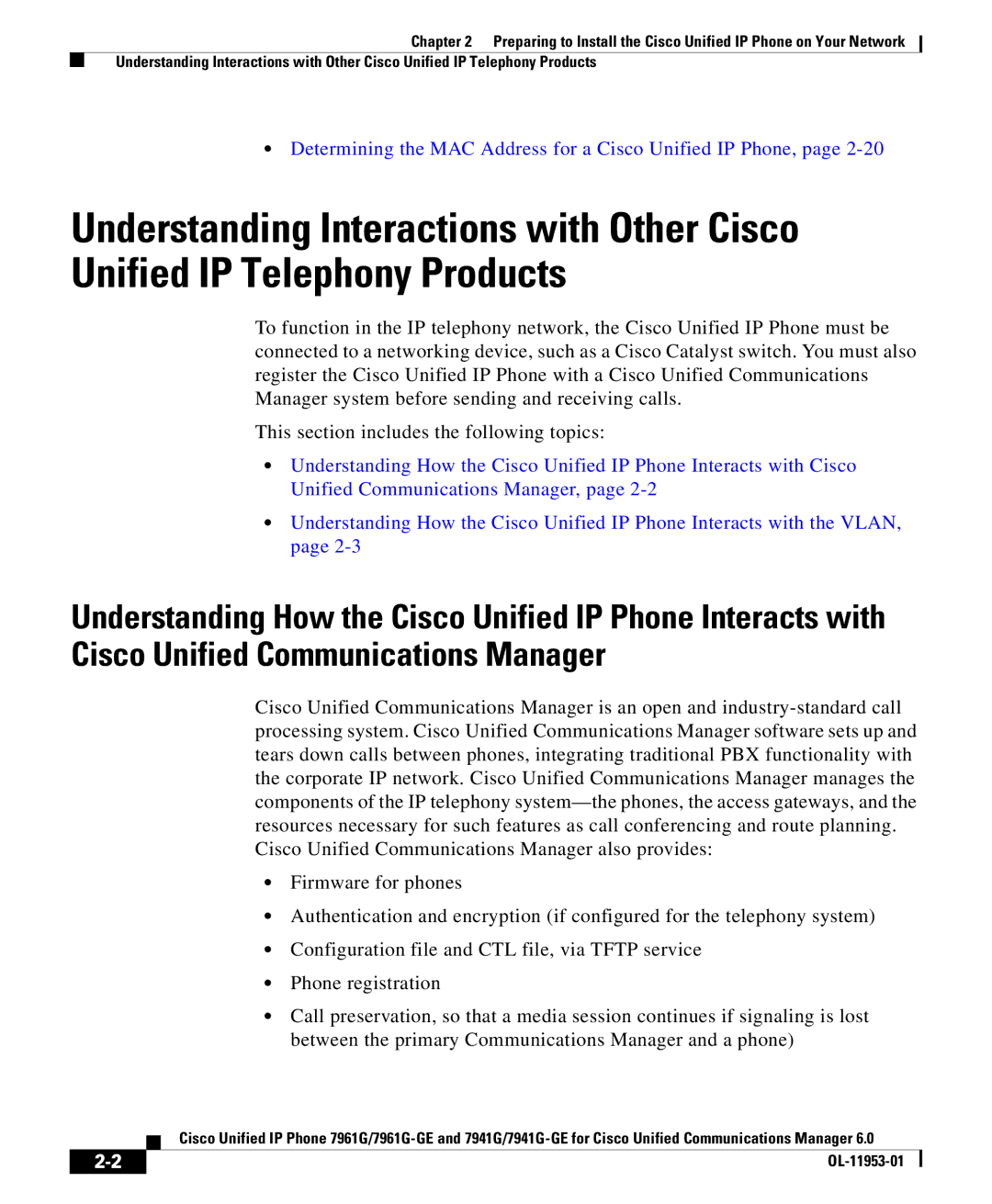Chapter 2 Preparing to Install the Cisco Unified IP Phone on Your Network
Understanding Interactions with Other Cisco Unified IP Telephony Products
•Determining the MAC Address for a Cisco Unified IP Phone, page 2-20
Understanding Interactions with Other Cisco Unified IP Telephony Products
To function in the IP telephony network, the Cisco Unified IP Phone must be connected to a networking device, such as a Cisco Catalyst switch. You must also register the Cisco Unified IP Phone with a Cisco Unified Communications Manager system before sending and receiving calls.
This section includes the following topics:
•Understanding How the Cisco Unified IP Phone Interacts with Cisco Unified Communications Manager, page
•Understanding How the Cisco Unified IP Phone Interacts with the VLAN, page
Understanding How the Cisco Unified IP Phone Interacts with Cisco Unified Communications Manager
Cisco Unified Communications Manager is an open and
•Firmware for phones
•Authentication and encryption (if configured for the telephony system)
•Configuration file and CTL file, via TFTP service
•Phone registration
•Call preservation, so that a media session continues if signaling is lost between the primary Communications Manager and a phone)
|
| Cisco Unified IP Phone | |
|
| ||
|
| ||
|
| ||
